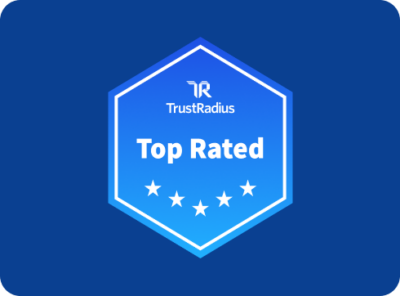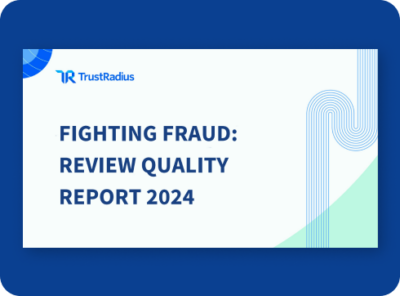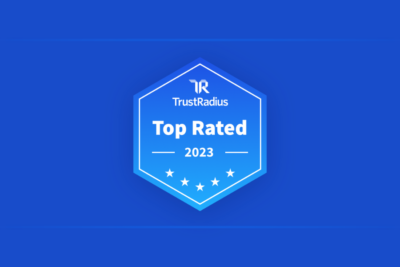
Authenticity Is the Future: Oracle CCO on the evolving role of customers in enterprise
 Jeb Dasteel is the Chief Customer Officer at Oracle and co-author, with Craig LeGrande and Amir Hartman, of Competing for Customers: Why Delivering Business Outcomes is Critical in the Customer First Revolution. We talked to Jeb about what it means to be customer-centric and how Oracle is embracing customer voice as a strategic advantage.
Jeb Dasteel is the Chief Customer Officer at Oracle and co-author, with Craig LeGrande and Amir Hartman, of Competing for Customers: Why Delivering Business Outcomes is Critical in the Customer First Revolution. We talked to Jeb about what it means to be customer-centric and how Oracle is embracing customer voice as a strategic advantage.
Tell us about your role at Oracle.
When I was named Chief Customer Officer at Oracle, I literally didn’t know anybody else that had that title. I came to Oracle in 1998, and in late 2004, I was asked to take on the task of driving Oracle towards greater customer-centricity. We had just completed the acquisition of PeopleSoft and our executive management team saw an opportunity to strengthen our customer relationships. Ever since then, the job has been to further develop and evolve these programs that can make us an increasingly customer-focused company.
My role has evolved over time. In addition to delivering great products and services, there are four main things we do to drive customer success across all product lines, business units, geographies and even back-office functions at Oracle. The first is facilitating open feedback from our customers. Second is effectively engaging customers, and realizing that requires a segmentation strategy, since different types of engagement work for different types of customers. The third is creating advocates. Customer advocacy is hugely important, and that is primarily where peer reviews and TrustRadius come into play. And the fourth area we invest in is value realization. That is all about how we help our customers target, track and measure the attainment of actual business outcomes.
I’m especially excited about that last area, as there is enormous potential to help our customers make significant advances here. Plus value realization creates a virtuous cycle back into advocacy. As we help customers realize the benefits they get from our product, we need to be able to work with customers to document that and take it to the next customer or prospect. You just can’t sell this kind of technology without great references.
Why are reviews so important to your advocacy strategy?
Oracle is 100% B2B. Yet our customers have dramatically evolving B2C consumer experiences all day, every day. So our goal is to deliver the same type of experiences in their B2B life as they have as consumers in their B2C life.
However, that is really hard to do, especially for companies like Oracle. At the upper end of the market, we have very large businesses with highly complex customer relationships, where an organization could be using 30-40 different Oracle products at the same time. That means we need to get seriously creative in terms of how we service those customers, help them succeed and then create strong advocates. It requires a certain level of sophistication as well as scale.
Honestly, we are still trying to solve the scale problem, and that is one area where peer reviews can help. Reviews deliver scale that we weren’t able to achieve before, as well as a level of authenticity we don’t have in other forms of advocacy. I remember seeing the idea that “Truth Sells” on TrustRadius, and that resonated with me. We have seen dramatic results with reviews — in terms of scale as well as the quality of assets we’re getting for marketing and sales.
Can you elaborate on why scale is so important for your team?
When I started working at Oracle almost 20 years ago, we did about $9 billion a year in revenue with something like 40,000 employees. Today we are close to $40 billion in revenue with more than 140,000 employees. Our advocacy engine has increased in size over those years, but it doesn’t make sense for it to expand at anything close to the overall growth rate that Oracle continues to experience, especially at the crazy-fast growth rate in our cloud business.
We of course need scale to meet the ever-increasing needs of a much larger and more complex business. There is massive demand these days for more customer assets covering more use cases across thousands of products. On top of that, the kinds of advocacy and assets we develop and consume need to continuously evolve as our customers and prospects evolve. Buyers expect to have a Yelp-like experience, and Oracle must be able to deliver on that.
Classically, large technology companies have used tactics like analyst relations to influence purchasing decisions. What do you think is influencing those decisions today? Have advocates replaced analysts?
I still think that the analysts are important. However, they are important only as long as customers see real value in what they say. Buyers are doing more independent research, with peer reviews having greater and greater impact now. In some ways, I look at what TrustRadius does as quite similar to the analyst function — by having a critical mass of customer feedback, you can even go beyond simply cultivating peer-to-peer reviews to create a broader picture of the category with user-driven insights.
What is your vision for customer reviews at Oracle?
If you look at oracle.com/customers, we’ve got more than 3,000 reference assets that all follow a specific standard. But we are ready for a change. Ultimately, I want more organically developed assets. I want them to be instantly relatable. Authenticity is the future, and we need to get to that future as quickly as possible. A review created by a user who has had a great experience with Oracle is increasingly critical for purchasing decisions.
The beauty of those reviews is that they are largely uncontrolled by Oracle. Well, that’s the beauty and the horror of it, right? If a customer is going to produce something, you know it will be 95% positive but perhaps 5% negative. But the power of that 95% completely counterbalances the 5% negativity. In fact, that 5% of critical feedback indicates the review is an authentic assessment of a customer’s experience. If that is the cost of telling an authentic story, I have no issue with it whatsoever.
We’re really happy with the results we’ve seen with TrustRadius over the past year. We had a 150% increase in reviews and ratings for Oracle HCM, and close to that for page views. What surprised and delighted me was, when we segmented the data by who left reviews and who read reviews, the larger organizations were the most significant contributors as well as the most frequent visitors. In terms of site visitors, the two biggest cohorts were organizations with 10,000 to 25,000 employees and then 25,000 and up.
Do you have any advice for marketing leaders who want to embrace a customer-centric approach?
The first thing you must do is accept that the customer’s journey today is fundamentally different than it was yesterday. Speaking from our experience at Oracle, the customer is really in the driver’s seat today, much more so than even two or three years ago. If you accept that, there are three things you have to do really well as an organization.
First, listen to your customers in terms of how they measure success and what their desired business outcomes are. Next, you need to come up with engagement programs that, in a very structured way, create opportunities for you to be a trusted advisor and a partner to your customer. Then, you need to help customers actually realize the expected value they originally intended to get from your products or services.
That last part can be tricky, because when customers express what they want, sometimes it doesn’t align with what they are trying to achieve. You have to tease that out, listen, know their business just enough to be dangerous. Sometimes you have to push back a little bit, slow down the sale to make sure your customers are getting what they really need. Marketing plays an important role in that process.
Finally, close the loop by leveraging those customers and their success in marketing. Peer reviews aren’t an interesting but passing trend — they fill an acute need for authenticity, and we are fully embracing that at Oracle.
Want to learn how reviews can help your company market and sell more authentically? Let’s talk.




